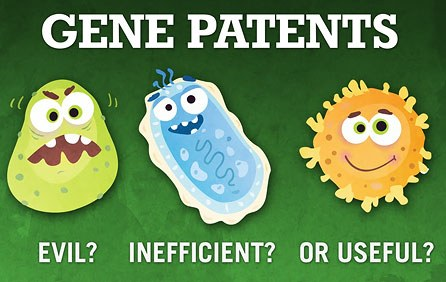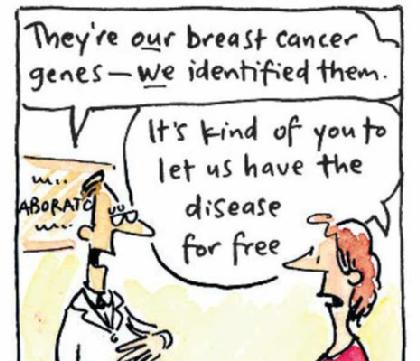The Gene Patent Debate: What’s Your Perspective?

Most of us have heard of the gene patent debates, and the pros and cons for both sides. On the one hand it spurs innovation, but on the other hand it creates an opportunity to put profit and self-interest above the greater public good. Interestingly, it is theorized that the allowance of patents on what many of us would consider nature (i.e. genes, proteins, peptides, organisms, etc.) started with a scientist named Ananda Mohan Chakrabarty, who developed a genetically engineered bacterium capable of breaking down crude oil. He filed for a patent and was turned down because the examiner considered the bacterium part of nature and thus unpatentable. Chakrabarty turned to the Board of Patent Appeals and was again rejected. The case was eventually argued in front of the Supreme Court in March of 1980 and in a 5-4 ruling, the Supreme Court ruled that because the bacterium was non-naturally occurring (i.e. man-made) it was indeed patentable matter. The common belief now seems to be that if something is isolated and purified it is patentable, and since the Chakrabarty case, the number of patents that have been granted based on organisms, gene sequences, protein sequences, gene/protein fragments etc. has exploded.
One of the most prominent litigation cases regarding gene patents (mainly because it has been continually thrust into the limelight) deals with a company called Myriad Genetics Inc and seven gene patents it holds regarding BRCA1 and BRCA2, which are implicated in breast and ovarian cancer. Myriad entered into an exclusive license agreement for the seven gene patents regarding BRCA1 BRCA2 with the University of Utah and since then they have aggressively enforced their patents. Because of their aggressive enforcement and almost complete monopoly, the American Civil Liberties Union, cancer patients and the Public Patent Foundation filed a lawsuit against the company claiming the patents were unconstitutional and invalid. In a jaw-dropping verdict, a US district court ruled in favor of the ACLU et al and found the seven Myriad patents invalid. Although the case is undoubtedly far from over, the implications for the feasibility of gene patents may be far-reaching, especially for companies such as Myriad. Globally, Myriad has almost 900 patents, and of those 900, 263 have the word gene or sequence in the claims (keep in mind that sequence could also pertain to amino acid sequences instead of nucleic acid sequences). It will be interesting to see how this all plays out and the prospective future for those 263 patents.
What is your perspective on all of this? Should these types of patents be valid?
– A.S.


